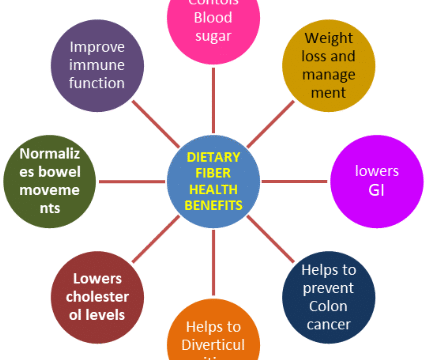Fiber is an essential part of a healthy diet that often doesn’t get enough attention. Found mainly in fruits, vegetables, whole grains, and legumes, fiber plays a key role in keeping our digestive system running smoothly and supporting overall health.
One of the main benefits of fiber is its ability to promote good digestion. It adds bulk to the stool, which helps prevent constipation and keeps bowel movements regular. This is important because a healthy digestive system helps the body absorb nutrients effectively and eliminates waste efficiently.
There are two types of fiber: soluble and insoluble. Soluble fiber dissolves in water and forms a gel-like substance in the gut. It helps lower cholesterol levels and stabilizes blood sugar, which is especially beneficial for heart health and managing diabetes. Foods rich in soluble fiber include oats, beans, apples, and carrots. Insoluble fiber, on the other hand, does not dissolve in water and helps move food through the digestive system. Whole wheat, nuts, and vegetables are great sources of insoluble fiber.
Adding fiber to your diet can also help with weight management. High-fiber foods tend to be more filling, which can reduce overall calorie intake by keeping you satisfied longer. Plus, many fiber-rich foods are naturally low in calories and packed with vitamins and minerals.
To boost your fiber intake, try to include a variety of fruits and vegetables in your meals, choose whole grain options instead of refined grains, and enjoy beans or lentils several times a week. Remember to increase fiber gradually and drink plenty of water to help your body adjust.
Incorporating more fiber into your daily eating habits supports digestion, heart health, blood sugar control, and weight management. By making simple, fiber-rich food choices, you’re giving your body a strong foundation for overall wellness.



